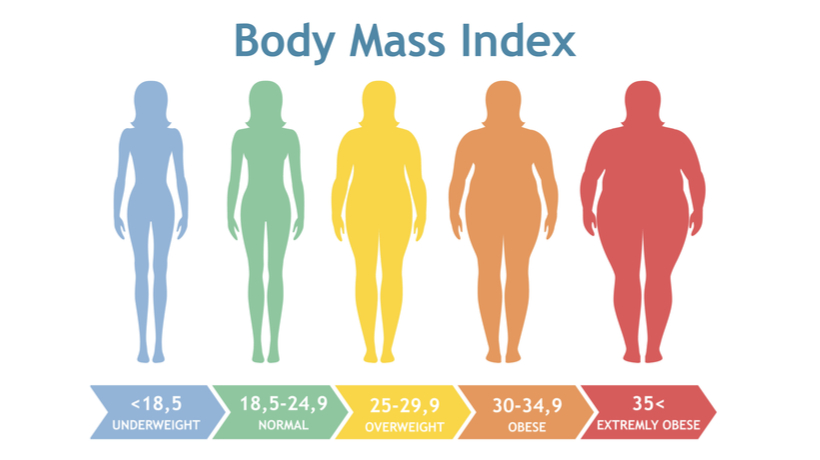Overweight and obesity levels have been on the rise since the early 2000s, and the CDC states that “around 26.5 percent of all American adults are now considered obese.” While that number may sound small, researchers are expecting that statistic to double or possibly triple over the next 15 years and include childhood obesity. People who are overweight or obese are more susceptible to diabetes and to 50 different health problems, including heart disease and certain cancers. According to a Harvard University study, “Obesity increased the risk of diabetes 20 times and substantially boosted the risk of developing high blood pressure, heart disease, stroke, and gallstones.” How does weight put such a damper on health?
The weight and health connection
Having excessive weight means your body needs to work harder to accommodate for it and perform tasks. Weight also taxes the organ systems in your body, which leads to more health problems. Heart disease is the most common ailment that affects people who are overweight and obese. According to Stanford Health Care, “Atherosclerosis (hardening of the arteries) is present 10 times more often in obese people compared to those who are not obese. Coronary artery disease is also more prevalent because fatty deposits build up in arteries that supply the heart.” The more weight you pack into your body, the higher your risk. Type 2 Diabetes is also common among overweight or obese people and the risk for it increases with weight gain.
Being overweight and developing cancer
It should be no surprise that weight also affects cancer risk. According to the American Cancer Society, “Excess body weight is thought to be responsible for about 8 percent of all cancers in the United States, as well as about 7 percent of all cancer deaths.” The cancers that could develop due to weight gain are endometrial, breast, colon, ovarian, kidney, and pancreatic, and your risk for getting them increases the more weight you gain. This is due to what excessive fat does to your body. Cancer.gov states, “Fat tissue (also called adipose tissue) produces excess amounts of estrogen, high levels of which have been associated with increased risks of breast, endometrial, ovarian, and some other cancers.” The more fat your body stores and doesn’t use, the higher your estrogen level and your cancer risk.
Does losing weight lower cancer risk?
There has been much stipulation about whether losing weight is the key to lowering cancer risk. Some results are positive, while others are nebulous. This is because genetics needs to be considered as a factor when gauging cancer risk. Losing weight might lower the risk of some cancers, but it might not affect the risk of others. Yet, that doesn’t mean you should lose hope. According to Annie McTiernan, MD, Ph.D., who conducted a study on weight loss and cancer risk, “We’ve found that reducing weight through either diet or exercise significantly lowers the following cancer risk factors: Estrogens and testosterone, which are risk factors for breast and endometrial cancers…and inflammation-related proteins, which increase risk for colon and other cancers.” This does indicate that losing weight lowers cancer risk, but only for certain cancers that crop up due to weight gain. Still, it’s an important solution that serves as a guideline for keeping cancer at bay and for maintaining an optimal weight.
Sources:
https://articles.mercola.com/obesity.aspx
https://www.helpguide.org/harvard/how-excess-weight-affects-your-health.htm
https://stanfordhealthcare.org/medical-conditions/healthy-living/obesity.html
https://www.cancer.org/cancer/cancer-causes/diet-physical-activity/body-weight-and-cancer-risk/effects.html
https://www.cancer.gov/about-cancer/causes-prevention/risk/obesity/obesity-fact-sheet#q3
https://blog.aicr.org/2017/02/07/will-losing-weight-lower-your-cancer-risk-it-can/



